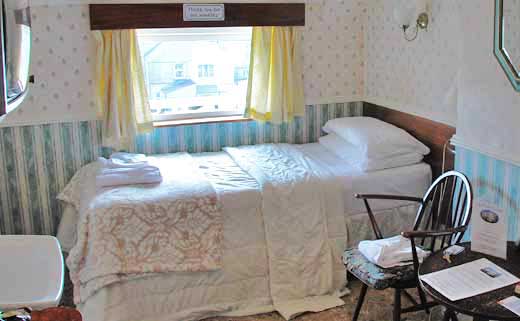Hotels, B&Bs, Hostels, Dorms, Homes
European Travelers' Sleep Options
Quality, price, amenities, comfort. Always negotiate a better deal.
My bed and breakfast room in Cardiff, Wales, UK was simple and quiet. The traditional wash basin was in the room and the bathroom was just outside the door. The TV is hanging on the left wall. That is standard throughout Europe because there is no floorspace available. Who wants to watch TV when traveling in Europe, anyway? About the only thing it is good for is the morning weather report. That is a no smoking sign above the window. Smoking is getting to be a lost habit in Europe.
Carpe diem. Vivere bene! Gratia Deo.
Chapter 14 of
HOW TO EUROPE:
The Complete Travelers Handbook
John Bermont
This entire book is published totally free on-line by the author, photographer, and webmaster, yours truly, with help from my daughter Stephanie. I welcome all questions, comments, compliments, and complaints. For contact information please see NOTE TO READERS. Updated 6 December 2015.
Convenient, clean, cozy, and cheap.
It is a challenge finding a good value room in Europe, especially in the major cities where you are most likely going to stay.
YOU WON'T FIND IT HERE
Faux Monde
A lot of what is written in magazines and travel guide books on hotels is nauseous nonsense. Descriptions of charming owners, settings, furniture, cheap prices, and/or (in)famous clientele are not what you need. Much of this is fanciful gross fiction. It's meant to sell perfume as advertised in adjoining pages, or to get repeated free rooms for the writer. Have you ever read one of these reviews with the least bit of criticism?
The Real World
What follows here is the nuts-and-bolts of what it's really like in Europe. You can sleep better for less no matter what your budget if you don't sleep through this chapter. I'm talking half price, clean rooms, firm beds, good plumbing, and no noise. If you do not appreciate that, you have not been to Europe.
Hotel Lists
There are no hotel lists in this book. Go back to chapter 2, On Budget in Europe: Travels Costs, to learn how to get excellent current hotel lists, and how to avoid getting bummers. Some of the best hotel lists are free. Some of the others are in the 2" thick travel guidebooks. See chapter 10, Europe Guide Books and Maps: Tomes for Travel for my hands-on been-there-done-that verdict on which guide books to trust and which are better left for kindling.
HOTELS
Ratings by the Stars
There is a greater variety of hotel quality in Europe than in America. In the large cities, major chains operate first class hotels on a par with their hotels in America, though at double the price. At the bottom end of hotel quality are decrepit, dirty hotels which could pass no fire or health department inspection in America. I have stayed in places at both ends of the scale. My comfort and budget dictate the mid-range "standard" European hotel which is described below.
Hotels are rated by some government bureaus and given "stars," one star being the lowest and five stars followed by an "L" being the tops. This is reversed in Italy where a "category four" is the lowest and a "category one de luxe" is the best. In some countries, it appears that these ratings are not official, but are whatever the hotel wants to classify itself as. If there is an official rating, as there is in some of the countries with high tourist traffic, it will be posted in the lobby or in the room. In France there is a placard on the outside wall next to the front door showing the official hotel category.
First Class
First class hotels, whether part of an American chain or of local luxury vintage, are known by the lobbies they keep and the prices charged. However, a high price does not guarantee a comfortable room. Look for a rating of 4 or 5 in the Michelin Red Book for an objective opinion. Treat with suspicion any self-anointed stars that hotels sometimes like to give themselves.
The clientele of 4 and 5 star hotels are generally European, American, and Japanese business executives, well-to-do tourists, and American Congressmen and Congresswomen and their staffs. Those are our tax dollars at work. There is a certain loftiness, perhaps arrogance, in the European employees in these places. If you arrive in worn Levi's with a backpack, be prepared to be ignored. Most of these hotels accept the major credit cards. Watch out for extra charges for "service." Check your bill every day.
Standard Hotels
The "standard" European hotel is nearly as comfortable as any of the above for sleeping, but lacks some amenities which are common and expected in America. In many of these hotels, some of the single rooms have no douche (shower) or W.C. (toilet). These facilities are located in separate little rooms down the hall. If there is a bathroom it was probably added long after the hotel was built and is probably no larger than three feet square. If you are a big person good luck turning around in there. While the room without a shower or toilet is considerably cheaper than one with, some hotels make a small charge to use the shower room. Standard hotels are generally old, relatively small, and are operated by a family or individual with a few employees. The desk closes at midnight and the front door is locked, but a ring of the night bell will rouse the keeper to let you in. The Michelin rating for the standard hotel is 2 or 3. Most of the hotels in Europe fit this category. This is the kind of hotel I seek out every night.
Not So Good
At the bottom of the barrel are the substandard cheap hotels. You will probably be able to sleep after turning off the lights so that you can't see the grime, worn carpets, and broken blinds. Rooms are tiny. Heat and hot water may be nonexistent, though are usually available for part of the day. Door locks may be a joke that any hair pin could open. The Michelin rating for cheap hotels is one or none. Budget guidebooks frequently list and recommend them. This type of hotel is plentiful in Europe.
HOW TO FIND A GOOD VALUE ROOM
It is very easy to pay a lot for a lousy room. It is a memorable occasion when you find a good and cheap room.
Overview
On a comfort per price scale of 1 to 10, American basis, there are many hotels at negative 5 and very few equal to plus 5 in Europe. When you walk in the door the hotel clerk will notice that you are an American before you get to the desk (about as difficult to do as pointing out a horse in a chicken coop), and he or she will always quote you a price for the most expensive room available, though probably not the most comfortable.
Rather than present a listing of supposedly cheap hotels with charming owners in a few major cities (the popular guidebooks already pretend to do that), my intention here is to tell you how to find a comfortable, inexpensive hotel room in about any city in Europe, on your own. Note that the words "comfortable" and "inexpensive" are relative and subjective, and vary significantly. Prices are higher in the larger cities and resorts, and in the northern part of western Europe. This hotel shopping method doesn't work well during wine festivals, trade fairs, and sports spectacles. There may be no rooms available at any price during these popular events.
The Method
First, lay your hands on a hotel list and city map. Both are available at the city tourist office, either free or for a nominal charge. Park your luggage in a train station locker or leave it in the trunk of your car if you are driving. Select the section of the city in which you wish to stay, based on your means of travel and objet de voyage. Start walking around your chosen neighborhood examining the hotels. For train travelers, this is easy since there is a high concentration of hotels within a five minute walk of the station. Auto travelers might just as well drive around and double park while making inquiries. For each hotel, check the tourist office brochure for prices of singles or doubles, as your case may be. If the hotel is not listed in the tourist office brochure, beware.
Before driving in any city auto travelers can find valuable information in chapter 18, Driving in Europe: Back Alley to Blazing Autobahn. Be especially wary of the Z.T.L. areas in many Italian cities.
Target those hotels whose listed prices are above what you want to pay. Note that some of the better hotels do not list their least expensive rooms with the tourist office. And conversely, hotels listing very cheap rooms usually are fresh out because the cheap rooms went to the early birds. One big advantage of the cheapest room in a more expensive hotel is that a better breakfast is provided. This is especially true in Holland, Germany, and Scandinavia where breakfast can almost get you through to dinner. Help yourself again to that table full of eggs, cheese, meat, bread, milk, corn flakes, juices, fruits, etc., etc., but don't abuse the system by packing a lunch from the table unless the owner gives you the OK.
The Action
On entering the hotel to inquire for a room, let the clerk know what you want — double or single, one night or many, toilet and tub or not — in straight-away English. If you know the local language, use it. If you are communicating, good. If not, switch over to your Berlitz Phrase Book or sign language. When he/she gives you a price, pull out your pocket calculator and punch up some keys to find out what it costs in dollars. Announce that the price is too high (it's ALWAYS too high) and ask for a less expensive room. Generally you will then be given a lower price for another room with the apologetic explanation that it has no W.C. and/or no douche, i.e. no bathroom. Here you go through the calculator routine again. This offer will probably be a good deal. If not, excuse yourself, tell them that it is still beyond your budget, wish them a good day, and turn for the door, but don't be too abrupt. Especially if you have been talking to the junior member of a two person staff, you may hear some hurried words of the native tongue followed by an announcement that another room is available at a still lower price. They blinked. You won. If the price is right, take it. If not, make a gracious exit.
If the hotel was only half full last night and it's not looking any better so far today, you may be very pleasantly surprised. At all times, be clean and presentable, courteous and respectful.
Continue prowling the neighborhood practicing your pitch. Within an hour you'll know what the traffic is expected to bear so go back to the hotel offering the best deal. Chances are that the lowest cost room is still available.
If the hotel is full (complete in France, besetzt in Germany), inquire about a room for the following night if you are planning to stay for a few days or more. On a late arrival your bargaining position may be weak, or if you're in luck the owner has one room left and wants to go to sleep so he'll strike a good deal right off.
Why Not?
Bargaining may seem more appropriate at a flea market, but it can be fun and very profitable when shopping for a hotel room as well. I've received significant discounts from the posted list prices of rooms. Smart owners figure that it's better to let a room go for a 30% discount than to allow a vacancy for a night. I can almost guarantee that you'll save a minimum of 10% every night, but that will depend on your own negotiating skills. Since the nightly hotel room cost is one of your major travel expenses, good negotiating can be a real budget stretcher. Remember that a hotel room is more perishable than fresh fish on a hot day. The room is worth nothing in the morning if it wasn't rented, but the rotten fish can always be used as fertilizer.
Bargaining is not just for the smaller inexpensive hotels. One New Year's Eve in Amsterdam I was enjoying a drink at a major international luxury hotel with my girlfriend. I stopped by the reception desk just to see what a room would cost. I was quoted a "rack rate" for a princely sum and promptly told the clerk that it was too much. He immediately lowered the price and I said still too much. Then came his third offer, approaching half price.
On one stay in Stockholm at an upper class hotel my bargaining produced a room without a shower. I had to ride the elevator to take my shower on another floor. Other guests on the lift were wearing their finery to a luncheon banquet, and there I was in bath robe and flip-flops. We exchanged greetings. Why not? Europeans almost always grab any opportunity to practice their English.
Using the Tourist Hotel Reservation Office
If the weather is bad, or if you don't want to take the time to shop for a hotel room, most city tourist offices will locate a room and reserve it for a small fee and a deposit. Bargain with the tourist office also. They often try to place you in an overpriced room that just happens to be available because it is shunned by knowledgeable travelers. Carefully review the hotel price list before agreeing to any reservation. Again, go for the cheapest room in a better quality hotel, rather than the cheapest room in town. If you are not satisfied when you arrive at the hotel, go back to the tourist office and start over. If you are not satisfied the next morning go back and start over.
Bidding
You have probably seen TV advertisements for Priceline, Expedia, Travelocity, and others touting their bidding feature. I have never used these services. It is reported by many people that the bidding system works well in major cities for high scale hotels, e.g. 4 or 5 star. I'm not in that league. The price of breakfast is higher in these hotels than the cost of the hotel rooms I normally use. Also, you are normally locked in to that hotel with a non-refundable deal charged immediately to your credit card. It is best to know something about the city you are visiting so you can select a good location because you can't pick and choose the hotel. The bidding agency does that for you.
HOTEL POTPOURRI
Here follows a catalog of observations on the characteristics of "standard" European hotels, plus some information on higher and lower category hotels.
Good Rooms
Outside influences may very likely affect your comfort, no matter the classification of the hotel. Within an individual hotel, there are good rooms and bad rooms. The good rooms are the quiet rooms. The bad rooms are the ones overlooking a busy street (at less than ten stories), those facing a bus depot or train station, those next to the elevator, those next to the toilet and shower rooms, those with a church bell tower across the street, those over or near the kitchen, bar, or disco, and all of them if there is no carpet in the hallway.
Avoid taking a room near a construction site, which can be identified by fences, tower cranes, dumpsters, equipment, and supplies. Those guys get up early to start the air hammers. I met a traveler in Valencia who couldn't sleep because the street crews were running a generator and air compressor all night long, painting fresh stripes on the boulevard. I got a good quiet sleep in the same hotel because I had a room facing the side street.
Fight Back
Thin walls were not born in America. There are the occasional noisy and/or weird neighbors and even shouting, bucket-banging maids. Change rooms. Move to another hotel. Don't put up with less than you are entitled to.
I complain and change rooms fairly often. Hotel keepers must figure that people like to sit in the window and listen to the horn-blowing traffic echo between the stone buildings. If you find yourself in a noisy room and it's not convenient to change rooms, look for French door type shutters or a roll down shutter on the outside of your window. These are very effective at blocking noise and keeping the sun out of your eyes in the morning. A "white noise" machine is also a very effective way of covering up noise. Earplugs are my last resort to stop noise.
Inspection
Inspecting the room before agreeing to it is a good idea, but a quick inspection can miss some important points. When looking at the room, test the bed to see if it is firm enough, and look out the window to see what nuisances might interfere with your comfort. Test the plumbing to see if the toilet works, if there is hot water, and if there is heat. And look for the electrical outlet if you will need one.
Years ago my Dad checked into a top hotel in Amsterdam and took the room key without checking the room. He came back to the front desk a few minutes later to ask for clean linens because the maid had not done the room. The desk clerk replied that "you Americans are always complaining."
Translating
If the desk clerk does not speak English and if you are not satisfied with something, go to the city tourist office and complain. I have used tourist offices a couple of times to get misunderstandings ironed out. Once in Milan, there was no heat or hot water in the morning. Nobody downstairs could speak enough English to tell me what was wrong so I went to the tourist office over in the train station. They called the hotel and found out for me that the boiler had broken down. Then I asked for a discount on the room and the tourist office obtained a 20% reduction in the room price. Not enough I thought, but I was in a hurry to catch a train so I accepted.
Helpful Strangers
Local citizens may notice you in train stations or airports and ask you if you need a hotel. They appear to want to help you get situated, but what they really want is a commission from the hotel they are going to guide you to. Some new-found traveling companions and I were worn out from a long slow train ride and let ourselves get nabbed by one of these operators in Athens. He led us to one of the worst hotels I have ever had anywhere — no heat, broken toilet (I fixed it), sink leaking on the floor, paint or gas smell in the halls, lukewarm water, and then attempts to rip us off the next morning for an extra 50% because we did not check out by 11:30, and another 7% for tax. I refused to pay either extra and found a better hotel on the next street for half the price.
Triskaidekaphobia
Chances are that you'll never see a hotel with a 13th floor, even if if has a 14th and above. This is due to the worldwide epidemic of triskaidekaphobia. Triskaidekaphobia is fear of the number 13.
Payment
If advance payment is required, and it often is, give the room a complete inspection as described above. You must stay in a good bargaining position, so never pay for more than one night in advance. If you pay for several days in advance, the playing field tilts against you. Problems will probably not be resolved
Breakfast
Breakfast is normally served in a special breakfast room, usually on the first floor above the ground floor. Breakfast can also be served in your room.
The price of breakfast is almost always optional. In some countries it is a good value, but in many countries it is not. In France for example, only a cup of coffee, milk, some bread, butter, and jam is usually served. You might find a better deal at a nearby café. Or if you want to supplement the hotel breakfast with some protein, buy a ham and cheese sandwich in a café or store the night before and save it until morning.
On the other hand, breakfast is a real stuffing in Germany, Holland, Britain, Ireland, and Scandinavia. Bread, cheese, eggs, yogurt, meats, milk, cereal, and more is usually provided. A smorgasbord breakfast in Scandinavia will also include several types of fish. I love herring for breakfast. Eggs are usually soft boiled, still in the shell, and standing in a little egg cup. Knock the top off with the knife and eat the egg from the shell with the miniature spoon provided.
Doubles
Double rooms are more pleasant than single rooms. Single rooms are less likely to have a shower or toilet. For less than twice the price of a single, double rooms usually come fully-plumbed. In many hotels singles and doubles are the same price.
Holidays
Some hotels are closed during part of the year. The owners go on vacation, quite often when you are on vacation, and take holidays when everybody else takes holidays. Many hotels are closed for extended Christmas holidays. The Michelin Red Books are very valuable in that they indicate periods when hotels are closed. It can be rather startling. I was staying in a small hotel in Blois, France for a few days and a public holiday came up. The owner and staff just disappeared for a day and a half.
Reservations
Normally I only make hotel reservations for business travel or for my first nights in Europe. After that I find a room on the fly when I arrive in a new city. I don't like to be tied down to a travel schedule by pre-booked reservations.
The internet has made it much easier to find hotels in the last ten years. You don't need a guidebook or a travel agent. Use your favorite search engine (Google, Yahoo, AOL, Bing) and key in the city and the words hotel, hostel, or B&B. You'll get thousands of results. It's too much. You can also use specialized travel web sites like Trip Advisor. This one includes reviews by other travelers to help you decide. Unlike the travel books and magazine articles, the reviews on Trip Advisor can be brutal. They can also be self promotions written by the owners. Read carefully.
For leisure travel it is best not to arrive in a small town late at night without a reservation. You may have to drive on and on before you find a vacancy. It's better to stop and look for a room late in the afternoon, say no later than 18:00 (6:00 pm). If you haven't found a vacancy after checking with three or four hotels ask for a recommendation from a desk clerk. They probably know which nearby hotel is likely to have vacancies and will call them to make a reservation for you.
If you are going on your first trip, reserve a room for your first few nights in Europe. Continuation of your travels with or without hotel reservations is a matter of personal choice. Without reservations, you may be disappointed as I have been on occasion in Paris, especially in the fall. While the autumn may be off-season for tourists, you will more easily find a hotel room in Paris during August than in September or October. The reason for this is that when the summer is over everybody gets back to work. There is a sudden surge in business trips to meetings, exhibits, and trade fairs in the major cities.
On one trip, I was driving around Poland and scooted over to L'vov in The Ukraine without a reservation. It was hard to find any hotel. I stopped to ask a cop and he asked for my personal and car papers, holding me up for 20 minutes while probably trying to hold me up for some cigarettes. Finally, after nearly knocking my teeth out driving on those cobblestones, I found a hotel but it was full. The desk clerk phoned around and found a room for me at the Hotel Sputnik on the outskirts of the city. The concierge jumped in his car and guided me out there or I never would have found it, for which I tipped him a couple of dollars.
Parking
City hotels which have parking for guests always charge extra for a space. Typically this can cost you €20 or more per day. Small hotels in the cities don't always have parking on the premises, and when they have it there are normally not enough spaces for all the guests. Early arrivals have the advantage.
Roadside motels in the countryside typically have a large parking lot with free parking.
In resort areas in the eastern countries, select a hotel which has a guard in the parking lot. These hotels will cost more, but the cost of rooms is much less than in western Europe, and there is a good reason for having the guard. We used one of those steel bars which lock the steering wheel to the brake pedal plus a fake dashboard alarm blinker on all our eastern travels. You can buy these items in European department stores.
If you don't have a parking space on the hotel property, park under a street light on a busy street. Do not hide your car in a back alley. That is where the smashers hang out. In Bratislava I had parked on a street behind the hotel. As I was locking up two police officers strolled by and advised me to park in the front. I did, and even asked another police officer out front if the space I had chosen was OK. He said yes so I parked there. The next morning my car had a shiny new Denver boot attached. The boot is called a clamp in Europe. The space I was in was right in front of the police station and was the space reserved for the Chief of Police! I talked myself out of an expensive parking ticket as two officers removed the clamp. It pays to know some German in the eastern countries.
No matter where you park, never leave any valuables in your car overnight.
For more information on parking and driving in Europe see chapter 18, Parking, Gasoline, Safety: Adjuncts to Driving in Europe.
Checkout
Checkout time is almost universally 11:00 in Europe. In hostels it can be 10:00 or earlier. If it is not posted it would be a good idea to ask on the day before your departure. It is also a good courtesy to confirm your departure on the day before you are going to leave.
If you change plans and decide to stay an extra day or so, check with the desk clerk to see if the room is available. Hotels in Europe accept you for the period you said you would stay and may have reserved your room for another guest starting immediately after your departure. I have been asked to change rooms on a number of occasions because my room had been pre-booked. Do not assume that you can keep the room for an extra day. Ask in advance.
Before leaving, check everything in the room to make sure you did not forget anything. I lose a shirt or something about once a month. Riding a taxi to the harbor in Lisbon I suddenly remembered that I had left my money in the hotel safe. Fortunately there was time to go back and retrieve it all without missing the boat.
Receipt
Carry your hotel receipt or a card from the hotel desk. You may forget where you are staying, or need to phone the hotel while you are out. Good luck finding a phone book, and then finding your hotel in it if you do.
Make sure you get a receipt. A couple years ago I stayed in a small hotel in Düsseldorf. It occupied the 8th floor of an office building. On checking out I paid cash because they did not accept credit cards. But, their "computer was down" and they said they couldn't print a receipt. I nearly left with that explanation, but asked for a hand receipt which they wrote out for me. A few months later I received a bill for the three days I stayed there. Mistake or attempted fraud I don't know, but they have my money and I have the receipt.
Taxes
Hotels charge tax. This is usually the national sales tax, which can be over 20%. Tax is almost universally included in the quoted price of the room.
Prices
Many hotels post prices of all their rooms on a large board at the desk, or sometimes on the front door or in a window visible from the street. Prices are also normally posted in the room. If there are seasonal rates, the high season rate is shown. Some cities and countries have rules regulating room prices, and the rate card in the room might be an official government notice stating maximum room prices.
As discussed above, prices are flexible. Tour groups and corporations always get discounts, so why shouldn't you? Just ask. Rates for extended stays are particularly flexible.
Lights
Hallway lights usually have only an "on" switch. This switch turns on a timer which automatically turns off the lights after a minute or so. If the lights are already on, move quickly to your door or the stairway since the timer was probably switched on by another guest and could go off at any moment.
If you can't find the light switch in the toilet, look outside in the hallway. Or sometimes it is concealed in the door jamb. Lock the door and the light will come on. The door lock switch is also used on some Paris café toilets.
Keys and Locks
European hotel keys are a pain. They are usually attached to a bob as big as a baseball and are almost impossible to put in your pocket — which is the idea. When you are leaving the hotel at any time the hotel keeper usually wants the key left at the front desk. It always bothers me that someone can walk up to the desk, ask for my key, and burgle my room. But after having stayed at hundreds of rooms all over Europe, this has never happened. Additional security measures have recently been introduced at a couple of my favorite hotels, so I assume that there have been some problems.
You must check your door lock at each hotel to see how it works. Some lock automatically when you close the door, and others require you to push a button or turn the key. If you have a balcony in Portugal, Spain, Italy, Greece, Bulgaria, or Romania, make sure that the window/door has an operating lock. If not, keep the shutters rolled down when you are out of the room.
The locks on doors of budget hotels often leave a lot to be desired. It seems that someone with a hair pin could get in. But the burglars are probably trying to break into rooms at the Ritz where the good goodies are. In either case you might want to pack a door stopper. See the GE item in the left column.
Safe
Most hotels maintain a safe for the use of guests. Check in your money and jewels, and carry your passport and camera. The safe is normally free, but hotels in resort areas sometimes charge an extra fee for their use. The fee can be for a week's use, so if you are staying for only a night or two it seems rather expensive. Get a receipt or a key to the box. There is usually a deposit required for the key. Many room safes now have user selected codes for operation. Follow the operating instructions on the box.
On check out, the desk clerk will not ask you if you have anything in the hotel safe. You have to remember that for yourself.
Furnishings
TV: It is becoming more common to find a television in a standard hotel. A radio is less common. If your room does have a TV, turn it on and see what's available. Most countries have two government owned channels and often broadcast some pretty off-the-wall stuff, along with a few of your American favorites.
Movies are broadcast in the original language with local subtitles in some countries. In others the local language is dubbed in. Italy has a large number of private commercial TV stations, though TV in other countries is not so well endowed.
You find CNN in the pricey hotels, though the bouffant anchor desk personalities have problems reading their lines. CNN should print the news on screen. Better, tune in the more professional BBC which is also available almost everywhere. They have better news and travel features, and their British accents are not as bad as the London mumblers on CNBC, son or daughter of NBC, the American network.
Phone: Except in the major hotels, you will seldom find a dial phone in the room. Most have a handset connected only to the front desk. Before using the phone, get specifics about the cost, and read part 1 of chapter 19, Telephoning to, from, and within Europe. The telephone is a major profit center for hotels and $100 phone bills are not uncommon. There are some easy tricks you can use to keep this under control so make sure you read chapter 19. It can save you many times the cost of this book.
Electrical Outlet: One or two very well concealed electrical outlets is the norm. These are already occupied by a lamp and a TV. See chapter 11, Electricity in Europe, for information on how to get around this issue and how to use the high voltage European electricity in your appliances and gizmos.
Wash Basin: All rooms have a wash basin with running water. Sometimes the hot and cold water are reversed with the hot on the right. Look for the red handle for hot and the blue handle for cold. Sometimes there is no hot water.
Bidet: Right next to the basin you often find a bidet. This piece of plumbing, looking somewhat like a toilet, is for washing your private parts. I use the bidet for washing my clothes.
Beds: Beds are generally too short to be comfortable for my 6'1" body, except in Scandinavia where I'm about average size. Beds in cheaper hotels are usually very soft and bad on your back. I have slept on the floor occasionally to get a better sleep.
Hang Ups: Most rooms have a small stand-up wardrobe or hooks on the wall for your clothes.
Mini Fridge: Small refrigerators stocked with drinks and snacks are starting to be seen in the tourist class hotels, in addition to the better hotels where they have been profit centers for years. Take what you please and it will be added to your hotel bill. These usually operate on the honor system, though some are automated. This is very convenient — and you pay dearly for the convenience. I usually buy some beer and cheese at a market and store them in the mini-fridge. It's not written that you can't put your own groceries in there.
Bathroom?
Do not call it a bathroom in Europe. In America, the tub and the potty are in the same room, called the bathroom. In Europe these facilities are usually in separate rooms. Then nobody has to hold it while smeone else takes a 20 minute shower.
Toilet
For the potty, asking for the toilet or W.C. is appropriate. Brits call it the water closet or the loo. French might call it the cabinet.
When getting a room, specify whether or not you want a toilet in the room. Many rooms in Europe do not have a toilet. If there is no toilet in the room, there will be one in the hallway or on another floor.
Toilets in the hallways of many French hotels seem to have been installed in a broom closet as an afterthought. They are never heated and always feature an open window. Toilet paper, when available, has a texture somewhere between newsprint and crepe paper. Many travelers, including me, carry their own TP which guarantees that they'll have a roll of good white stuff when the facilities do not.
Shower
Since toilets and tubs are often found in separate rooms in Europe, you must specify whether you want a shower or bathtub when you book your room. Just because you have a toilet does not mean that you have a shower or tub, and vice versa. Many rooms have neither.
There will always be a shower or bathing room on your floor, or someplace else in the hotel. Smaller hotels sometimes charge extra to use the shower room.
Showers often have no shower curtain. In fact, the shower might be only a shower head on the wall of the toilet room with a drain in the middle of the floor. This guarantees that the whole room takes a bath.
Even if there is a shower in your room, there is no guarantee of hot water. In the eastern countries, which grew up under the Bolshevik dictatorships, hot water can be shut off for a month or more. The reason is that all of the hot water in many towns is supplied from a central heating plant which burns brown coal, the fumes of which are readily and obnoxiously noticed in the air. Once a year the hot water plant must be shut down for routine maintenance. During that period there is no hot water. I stayed in a private home in Leipzig in former East Germany. To make sure he had hot water, the owner had a coal fired hot water heater installed in his bathroom. He had to load it with little bricks of charcoal and fire it up before I could jump in the tub.
Soap
Sometimes the hotel has it, and sometimes it does not. It is a good idea to carry a small bar of soap in your bag just in case. Don't buy it though. Pick up a bar from one of the hotels which leave extras in your bathroom. Bring your own soap to the eastern countries for sure. Their soap reminds you of something we had in the USA about fifty years ago. In fact, many things in the eastern countries are that way.
Elevators
Elevators under assumed names and camouflage are generally found in all hotels which are ranked above one star. A common name for elevator is "lift" because that is what the British call it and British English is what most people on the Continent learned in school. Some elevators remind you of bird cages, and others are ominously the size of coffins. If an elevator is present, it usually works. If you have a lot of luggage it probably knew you were coming and decided to take the week off.
Small hotel elevators normally have a heavy door that must be pulled open. These are designed to be locked until the elevator arrives, but not always. There is sometimes a second door which is part of the elevator cabin, and this is often a manual door also. Getting in and out with bulky luggage can be an annoyance.
For your own safety, get into the habit of using the stairs when going down. If you always descend by the stairs, you'll know where they are in case of fire. Chances are that if there is a fire all of the electricity will be out. Some fool may have plugged in an American 1,875 watt hair blower, popped the fuses, and/or shorted out the wires. Keep your flashlight handy on the night stand. It may save your life.
Crime
Do not leave valuables laying around visible in your room. Maids sometimes take a break while the door is open. They usually do their work in mid morning and few people are in hotels at that time, but don't risk it. Small valuables can find swift feet. Once your camera or passport disappears there is little chance that you'll ever see it again.
Don't be a criminal yourself. Leave the towels. They are not included in the room price.
Bellhops
There are no bellhops in standard European hotels. Carry your own luggage. There are bellhops in the better quality hotels, especially in the Mediterranean countries and resort areas. Keep some tip money handy.
Housekeeping
Do not leave your clothes or anything you intend on keeping in a bag on the floor of your hotel room. Housekeeping hires from the bottom of the grade card from a third world country. It is possible, even likely, that anything on the floor will be trashed when maid service enters the room. Keep your dirty laundry in the closet or concealed somewhere in the room.
Forward Reservations
Hotels will normally phone ahead for you and reserve a room in your next city if you ask. In Finland, a desk clerk once made several long distance calls for me before she could find a hotel with an available room, and didn't charge me for the calls.
ALTERNATES TO HOTELS
Pensions
What is a pension? First, it's not pronounced "pen shun," but "pen cee ohn." A pension is usually a small rooming house owned and operated by a retired woman.
Three meals per day can be included in the basic rate, though one or two meal "demi pensions" are usually offered. Don't expect to be in gourmet heaven. In small pensions it's just your normal home cooked meal, depending on the country and the owner.
Pension owners prefer that you stay for a few days. The prices are significantly lower than for hotels, partly because they don't have to change the sheets for a new customer every day and they don't have a corporate bean counter telling them how to run their business.
In resort areas on the Mediterranean, pensions can be sprawling complexes of bungalows. You'll find a lot of European families there on vacation.
Bed & Breakfast
The common acronym for this is B&B. You get a room to yourself and breakfast in a private home which has been adapted for accommodating tourists.
It seems that most American B&Bs charge prices equivalent to a big city luxury hotel even though they are located out in a cow pasture miles from anywhere. In Europe B&Bs are the economy way to go. I love them. They are normally about half the price of the cheapest hotel in town.
B&Bs are found throughout Europe. They seem to have originated in Britain and/or Ireland. Because they are in private homes you find various configurations. Normally the toilet and shower room is located outside the room, and normally it is used by more than one guest. Rooms are usually more spacious than hotel rooms, especially low cost hotel rooms. Owners are invariably friendly and helpful. Several have helped me carry my luggage up the stairs. B&Bs do not have elevators and the stairs in European homes can be quite steep.
Breakfast in B&Bs is normally served in a small room on the ground floor. You have the opportunity to meet other travelers from around the world. As you enter greet those present with a "Good morning." They will know you are a Yank right off. Breakfast includes toast, eggs, ham or sausage, juice, fruit, yoghurt, cereals, coffee, and tea. In Britain and Ireland it also includes fried (red) tomatoes. You will be well fed.
Zimmer Frei
The Dutch have a variant of B&B called Zimmer Frei, identified by a sign in the window or yard of private homes in ocean side resort areas. "Zimmer Frei" is German for "Room Available." It is written in German because most of the visitors are from Germany. Some signs also have English or French translations, but when it says "Room Free," the literal translation of "Zimmer Frei," do not expect to get gratis lodgings. Breakfast is normally not included unless the sign says "Zimmer und/mit Frühstück" ("Room and/with Breakfast"). Zimmer Frei is normally very cozy and comfortable, with warm welcomes for Americans from the Dutch owners. Similar establishments are to be found in Scandinavia, Germany, and eastern Europe. On one of my visits to Prague I stayed in a Zimmer Frei on the outskirts of the city. I had to hitchhike back to my room that night because the buses had gone to bed before I finished my night on the town.
Hostels
First, notice that hostel is not spelled the same as hotel. The French changed hostel to hôtel some centuries ago. In time we just forgot about that little roof over the o. The French also changed hospital to hôpital but we didn't go along with that change.
There are two general types of hostels. The organization Hosteling International is an association of youth hostels throughout the world. In order to stay at an HI hostel you must be a member. I stayed at the one in Dresden, Germany and was able to join on the spot. The American Youth Hostels (AYH) is the American branch of HI. It is not necessary to be a youth to be a member, but preference is given to members under 30 when space in the hostel is tight.
Then there are thousands of other freelance hostels. Membership is not required.
Hostels provide bunk house type accommodations. Sometimes the toilet and shower are in the room and sometimes there is a common facility. They are designed primarily for young travelers, though most have no age limit for visitors. At many hostels, facilities are provided for guests to cook their own meals. Breakfast is provided and included in the price at many hostels.
The AYH publishes directories of hostels in the United States and overseas. Locations and recommendations are also given in the popular budget guidebooks. When using these books, read the directions carefully. A hostel listed for a major city may be quite a distance from the center of town. You may have to catch a bus and travel out to a nearby suburb to get there. This won't be too pleasant if you arrive late at night and/or the clouds are dumping.
Because hostels offer only a communal area for sleeping with a dozen or so beds in a room, security is something to keep in mind. Doors usually do not have locks. Some hostels have lockers but you need to bring your own lock. Never leave valuables in an unattended bag. A money belt should also be considered. Wire ties to anchor your backpack to something would also be a good idea. See chapter 6, Your Packing List for Europe.
Yup, hostels can be noisy. Young people on the road are prone to loud music and late night partying. The managements try to control this. If you have a problem with a noisy roommate let the desk attendant know. On the other hand there is little you can do about someone snoring.
For more information on hostels see my page Hostels in Europe in the TRAVELERS YELLOW PAGES.
University Dorms
When school is out some universities rent the dorm rooms to travelers. This is a cheap way to travel. I've stayed in dorms in several cities, including Brugge and London. The London School of Economics has a really good deal with private rooms and a full breakfast. There were travelers there from all over the world, students, families, and geezers.
Apartments
For longer term stays in one city an apartment or home rental can be economical. Not only is the price favorable but the ability to cook your own meals instead of eating in restaurants all the time adds to your economy. Staying in apartments is especially attractive to families. There are usually two bedrooms or more so you don't need to rent an additional hotel room for the kids or the aunts and uncles.
Apartments are rented out by individual owners and by commercial brokers who have a group of apartments available for short term stays, usually a week to several weeks. Use your favorite search engine to find availabilities.
One problem with renting apartments is that the owners usually demand a deposit far in advance, and payment in full when you arrive — in cash. Most do not accept credit cards. Checks are out of the question. Getting the deposit sent over there can usually be done through your bank by international wire. You need the owners bank account information to do this. Visit your bank or credit union to get details. Some owners may be reluctant to give you their IBAN because they are "black market" and do not want to pay tax. That is also why they want cash. Unless you have read excellent reviews, e.g. through Trip Advisor or the Fodor's Forum, you are buying a cat in a sack if you pay up front without seeing the place. Caveat emptor.
Camping
Camping is popular with Europeans. It is not especially amenable to very many international travelers. Camp grounds are in the countryside, far from the artifacts and action of the major cities. If you are planning a hiking expedition camping may be just the thing. I haven't camped since I was a cub scout in Missouri and I've never camped in Europe so I can offer no advice. I am a city boy.
Private Homes
It is sometimes possible to obtain a room in a private home. City tourist offices in Germanic language countries can make the arrangements for you, especially during very busy periods when all of the hotels are full. Rooms in private homes are much less expensive than comparable comfort in a hotel. Most homeowners prefer that you pay in advance. The homeowner gives you a key and then seems to disappear. Usually no breakfast is provided, and kitchen privileges are not granted. But I have been handsomely fed in private homes and treated very well on every occasion. The owners make a little extra money during the travel season, and you have a chance to see the kinds of homes and apartments they live in over there.
I showed up for Oktoberfest in München one fine September afternoon and couldn't find a room for less than twice my budget. After partaking of a ritual meal at the Hofbrauhaus and a few more Massen (huge mugs of beer) at the Oktoberfest fair grounds, I boarded an overnight train. I had several hours of sleep in my seat and got off somewhere at about 5 in the morning. I caught a return train (Eurailpass is great!) and slept on that until arriving back in Munich at about 10 AM. Then the tourist office landed me a great cheap room in a private home. I enjoyed a week of Oktoberfest — wunderbar!
Holland is a particularly hospitable place. One night in Amsterdam, instead of locating a hotel room, I went out to my favorite cafe, the Hoppe at Het Spui. This is one of the famous centuries-old "brown bars" of Amsterdam. I met an interesting girl there and enjoyed some drinks and chat. Then she introduced me to her husband talking at another table, and they invited me home to sleep on their couch. They made coffee for me in the morning. It hardly gets any better than that. I took leave, giving them my best Tot ziens! (See you later!). Holland, what a country!
Have a good trip!
NOTE TO READERS
I welcome questions and comments. If you have any concerns about your trip to Europe that have not been covered well enough in this section please do not hesitate to write and ask. When you write please include relevant details, per the folowing paragraphs.
I do not open attachments. I do not click links to web pages of any kind. I will reply in a day or two, usually.
Do not forget to smell the hyacinths. At your liesure scroll through the Table of Contents of How To Europe: The Complete Travelers Handbook and read all 30 chapters, FREE on line. Good deal! You'll probably find the answers you seek, and some you didn't know you needed.
My email address is [email protected].
FREE
This web site is totally free for everyone, and a labor of love for me. To keep it afloat I receive a commission from Amazon.com for all goods purchased through the adverts I have selected, and any other products you might buy when you are on the Amazon site. Amazon has almost everything for sale, except the Brooklyn Bridge and Mount Rushmore.
Please visit my on-line store at
 .
Your support is most gratefuly appreciated. TIA.
.
Your support is most gratefuly appreciated. TIA.
To like and like not:


Adverts
To support this site:
Please buy your goods at:Amazon.com
Shop in your shorts!
Please clean out your cookie jar before clicking.
Rolling luggage sure beats lugging a pack on your back.
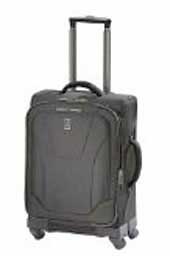 Travelpro Luggage Maxlite 2 20" Expandable Spinner
Travelpro Luggage Maxlite 2 20" Expandable Spinner
A shoulder bag for your daily walk-about.
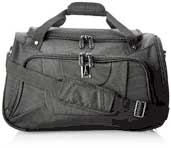 Travelpro Luggage Maxlite3 Soft Tote
Travelpro Luggage Maxlite3 Soft Tote
Keep your stuff organized.

Luggage Packing Cubes
eBags 3pc Set
The two gallon size is excellent for packing your clothes, but it is hard to find in Europe.
 Two gallon plastic bags
Two gallon plastic bagsZipLoc by SC Johnson
Inconspicuously lock your zippered luggage with a black wire tie.
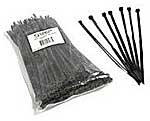 Cables to Go 43036 Cable Ties - 100 Pack (Black)
Cables to Go 43036 Cable Ties - 100 Pack (Black)
Your negotiating assistant will save you cash, as described in chapter 6.
 8-Digit Display Hand-Held Calculator by Sharp
8-Digit Display Hand-Held Calculator by Sharp
A Swiss Army Knife is unquestionably the handiest item a traveler can carry, except not on a plane.
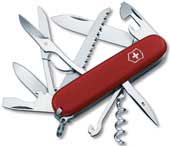 Victorinox Swiss Army Huntsman II Knife
Victorinox Swiss Army Huntsman II Knife
What a dandy of a camera! It includes a GPS that automatically sets the internal clock depending on which time zone you are in. You'll always know where and when you took the shot.
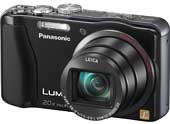 Panasonic Lumix ZS20 14.1 MP High Sensitivity MOS Digital Camera with 20x Optical Zoom
Panasonic Lumix ZS20 14.1 MP High Sensitivity MOS Digital Camera with 20x Optical Zoom
Bring home the memories.
 Olympus FE360 8MP Digital Camera with 3x Optical Dual Zoom (Silver)
Olympus FE360 8MP Digital Camera with 3x Optical Dual Zoom (Silver)
This is the camera that I use,
 Nikon D60 10.2MP Digital SLR Camera (Body Only)
Nikon D60 10.2MP Digital SLR Camera (Body Only)
with this amazing zoom lens,
![Nikon 18-200mm f/3.5-5.6 G ED-IF AF-S VR [Vibration Reduction] DX Lens](http://www.enjoy-europe.com/images/B000BY52NU.jpg) Nikon 18-200mm f/3.5-5.6 G ED-IF AF-S VR [Vibration Reduction] DX Lens
Nikon 18-200mm f/3.5-5.6 G ED-IF AF-S VR [Vibration Reduction] DX Lens
and this filter to reduce reflections and enhance colors.
 HOYA 72mm Circularizing Polarizing Filter
HOYA 72mm Circularizing Polarizing Filter
This tripod clamp is a handy accessory.
 CLAMP-POD Adorama SMALL 4001
CLAMP-POD Adorama SMALL 4001
Absolutely the best battery for digital cameras which use AA batteries.
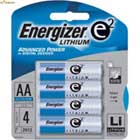 Energizer
EnergizerAA Lithium Batteries
4 Pack
Plug adapters are needed throughout Europe. There are at least five models used in different countries.
Note: The highlighted #E number is purely arbitrary. It is meant to help quickly identify products in this advert column when you write in for electrical advice.
See NOTE TO READERS.
This adapter is for the standard grounded plug in France, Germany, and northern Europe. It does not fit in outlets of Italy, Switzerland, Ireland, and Britain.
#E-010
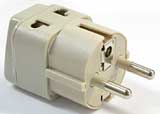 Grounded Universal 2 in 1 Plug Adapter
Grounded Universal 2 in 1 Plug Adapter
European Schuko plug.
4.8 mm prongs.
Equivalent to type E and F.
You can use this ungrounded Euro plug in some European countries.
#E-020
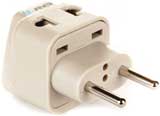 Universal 2 in 1 Plug Adapter
Universal 2 in 1 Plug Adapter
Euro Plug
4.0 mm prongs.
Equivalent to type C.
This is a universal plug adapter for the UK and Ireland.
#E-030
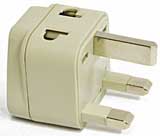 AC Adapter Plug for use in England, Scotland, Wales, and Ireland
AC Adapter Plug for use in England, Scotland, Wales, and Ireland
Equivalent to type G.
Here is the Swiss version.
#E-040
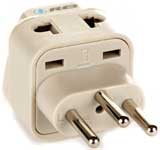 Grounded Universal 2 in 1 Plug Adapter
Grounded Universal 2 in 1 Plug Adapter
Type J for Switzerland
Here is the grounded Italian model.
#E-050
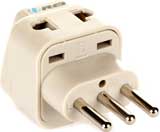 Grounded Universal 2 in 1 Plug Adapter
Grounded Universal 2 in 1 Plug Adapter
Type L for Italy
This 50 watt 220/110 volt step down transformer is good for very small 110 volt appliances and light duty chargers.
#E-070
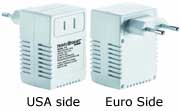 Travel Smart by Conair 50-Watt International Transformer
Travel Smart by Conair 50-Watt International Transformer
This little booklet is my favorite map of Paris.
 Michelin Paris Pocket Atlas (by Arrondissements) Map No. 16
Michelin Paris Pocket Atlas (by Arrondissements) Map No. 16
A pocket map of Amsterdam that won't get soggy in the drizzle.
 Streetwise Amsterdam Map - Laminated City Center Street Map of Amsterdam, Netherlands
Streetwise Amsterdam Map - Laminated City Center Street Map of Amsterdam, Netherlands
Here is the heart of London, a very big city.
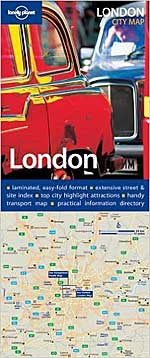 Lonely Planet London City Map
Lonely Planet London City Map
Wear a scarf for comfort and style. Nobody will ever suspect that you are an American.
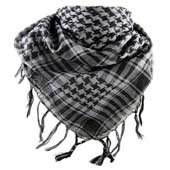 Very soft houndstooth neck scarf. Various colors available
Very soft houndstooth neck scarf. Various colors available
You know it's going to rain. Be ready.
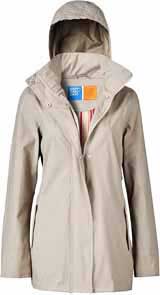 Happy Rainy Days
Happy Rainy Days
Women's Jacket
 Anne Klein Women's Classic Double-Breasted Coat
Anne Klein Women's Classic Double-Breasted Coat
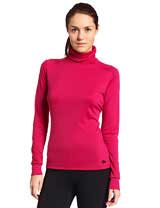 Hot Chillys Women's Peach Skins Solid T-Neck Shirt
Hot Chillys Women's Peach Skins Solid T-Neck Shirt
 Clarks Women's Wave.Run Slip-On
Clarks Women's Wave.Run Slip-On
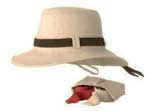 Tilley Endurables TH9 Women's Hemp Hat
Tilley Endurables TH9 Women's Hemp Hat
For leg comfort on the plane.

Arriva Travel-Tec Travel Legwear with Smart Compression Technology
My favorite T-shirt/undershirt has a pocket for securely carrying passport, cash, and credit cards under my outer shirt.
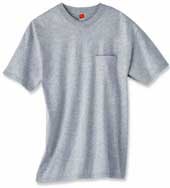 Hanes Tagless Short Sleeve Tee with Pocket
Hanes Tagless Short Sleeve Tee with Pocket
 New Casual Grey Herringbone Wool Cap
New Casual Grey Herringbone Wool Cap
A pocket size combo phrase book and dictionary, with American pronounciation. Ideal for travelers.

French At a Glance
Barron's Educational Series

Spanish/English English/Spanish
Larousse Mini Dictionary

Greek
Oxford Mini Dictionary
I used the Dutch version of Rosetta Stone. These programs are intense and complete.

Rosetta Stone
German Level 1-2 Set

Rosetta Stone
French Level 1

Rosetta Stone
Italian Level 1
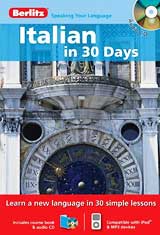
Berlitz Italian in 30 Days
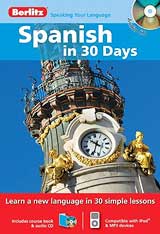
Berlitz Spanish in 30 Days

German, Conversational: Learn to Speak and Understand German with Pimsleur Language Programs
Rolling luggage sure beats lugging a pack on your back.
 Travelpro Luggage Maxlite 2 20" Expandable Spinner
Travelpro Luggage Maxlite 2 20" Expandable Spinner
A shoulder bag for your daily walk-about.
 Travelpro Luggage Maxlite3 Soft Tote
Travelpro Luggage Maxlite3 Soft Tote
Keep your stuff organized.

Luggage Packing Cubes
eBags 3pc Set
Wear a money belt under your shirt to protect your passport and valuables, especially if you are staying in hostels or dorms.
 Lewis N. Clark RFID Blocking Waist Stash
Lewis N. Clark RFID Blocking Waist Stash
A Swiss Army Knife is unquestionably the handiest item a traveler can carry, except not on a plane.
 Victorinox Swiss Army Huntsman II Knife
Victorinox Swiss Army Huntsman II Knife
The details on driving in Europe may save your life.
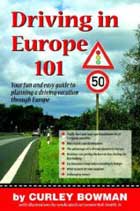 Driving in Europe 101by Curley Bowman
Driving in Europe 101by Curley Bowman
Michelin will get you on the right road.
 Europe Map Michelin
Europe Map Michelin
The best travel guide to all of Europe.
 Europe on a Shoestring
Europe on a ShoestringLonely Planet
A comprehensive guide to 3,000 hotels and restaurants in 44 major cities throughout Europe, in English. Separate books in the Michelin Red series cover individual countries in greater detail. This is a must have for frequent travelers.
 Main Cities of Europe 2015
Main Cities of Europe 2015Michelin Guide
Your negotiating assistant will save you cash, as described in chapter 6.
 8-Digit Display Hand-Held Calculator by Sharp
8-Digit Display Hand-Held Calculator by Sharp
